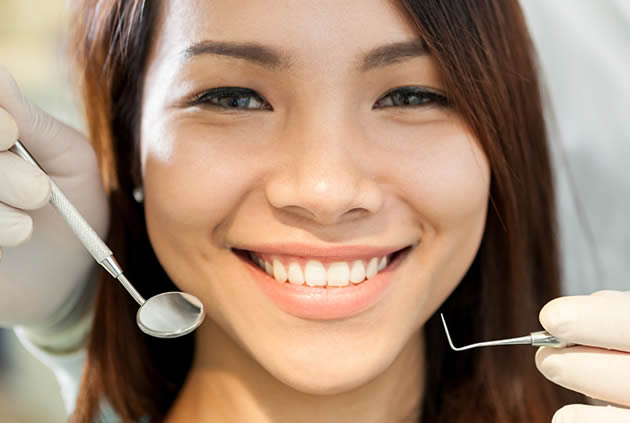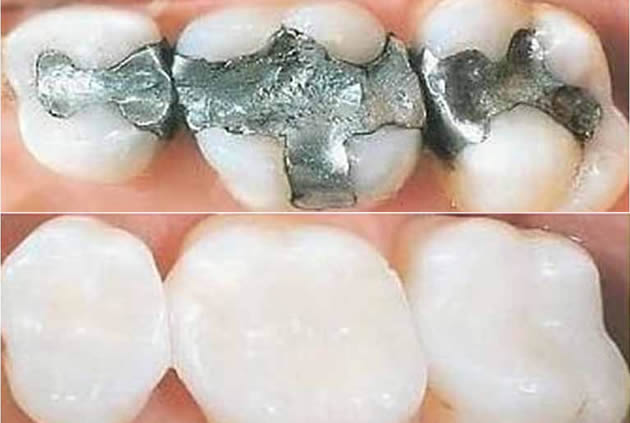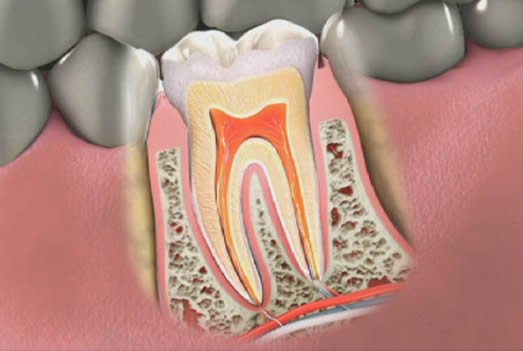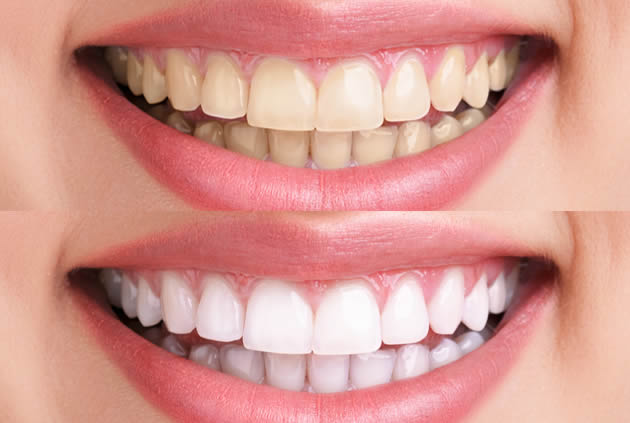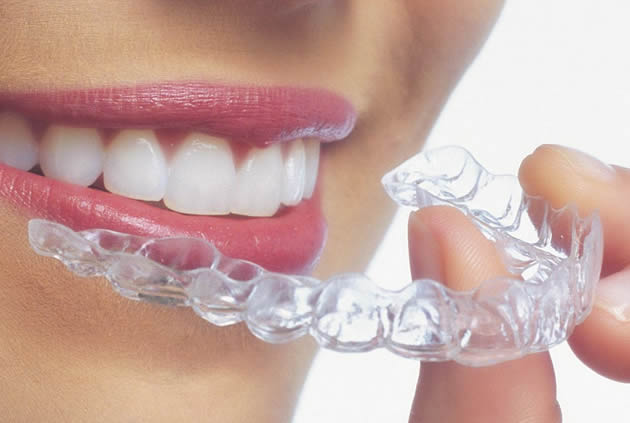
In many households, the bedtime routine is no fun. One of the trickiest parts for some parents is getting their kids to brush their teeth. However, it’s not a part of your child’s routine that should be skipped. To help make taking care of their teeth fun for children, here are some ideas for parents.
Toothbrushes:
Provide your kids with fun toothbrushes! By choosing a brush decorated with their favorite character or color, your children will think of their toothbrush more like a toy than a dental tool. Consider getting more than one toothbrush, so each night they can choose the one they want to “play” with at the time.
Toothpaste:
Children are picky about their toothpaste flavors just like their foods. Select toothpaste that you know your kids will like. Some of the flavor options include bubble gum and fruits, as well as the standby mint.
Floss:
If they start flossing at a young age, your kids will likely view it as part of their oral hygiene routine all of their life. Try using some of the fun flossing tools on the market today, because they may help get your child interested in flossing. There are many colors and shapes to choose from, so keep trying until you find one that motivates your child.
Rewards:
Enticing your children with rewards is often an easy way to encourage them to perform a task without arguing. Consider making a rewards chart and giving them a sticker each time they brush and floss. By the end of a week filled with good dental hygiene, a special reward will await them!
If you live in the Baltimore area contact us today

It’s hard to miss with advertisements and visits to the dentist that tartar is something you want to avoid for good oral health. But do you know what this substance is, how to keep from getting it, and what to do if tartar does develop?
What’s so bad about tartar?
Even if you brush and floss regularly, it’s impossible to get rid of all of the bacteria in your mouth. Bacteria and food residue combine to form plaque on your teeth. If left to thrive, plaque attacks your teeth and gums. It causes decay, gum inflammation, and will harden into tartar if not removed before it has the chance.
What does it do to my teeth and gums?
Tartar buildup makes it more difficult to brush and floss well, and tartar along your gums may lead to gum disease. Mild gum disease, or gingivitis, is often caused by plaque and tartar on your teeth. It can usually be reversed with careful dental hygiene. If left untreated, it will progress into periodontitis. This more serious gum disease can damage the bones and tissue that support your teeth, increasing your risk of tooth loss. It may also cause infections that contribute to heart disease and other health problems.
How can I control tartar?
Here are some ways to prevent tartar formation:
- Brush at least twice daily long enough to thoroughly clean every tooth and all of your gums. Consider using an electric toothbrush, which may be more effective for plaque removal.
- Use tartar-control fluoride toothpaste. It is formulated to help prevent tartar formation, and the fluoride can repair damage to your teeth that may have already begun.
- Floss every day to reach the areas that brushing cannot.
- Eat a healthy diet low in sugars and starches, and limit snacks between meals. Drink plenty of water to help rinse away plaque and bacteria.
- Don’t smoke because tobacco use has been shown to increase tartar buildup.
How do I get rid of it?
A professional cleaning is the only way to successfully remove tartar. See your dentist every six months for checkups and cleanings.
Our dental office is located in Baltimore

Reaching for a sports drink may seem like a smart way to rehydrate during a big game or after completing your exercise regimen, but you may not be as educated as you think. Consumption of sports drinks is on the rise, with 62 percent of American teenagers drinking at least one a day. That’s why it’s important to inform consumers that these drinks which are touted to help your body can also take a toll on your health, at least on your oral health. Let’s find out exactly how sports drinks can negatively impact your teeth.
What makes sports drinks harmful?
You might guess that sugar is what makes these drinks less appealing. It’s true that you should avoid the brands heavy in sugar, but that’s actually not your teeth’s biggest enemy in sports drinks. It’s the high acid content that presents the most danger. Researchers have found that sports drinks have so much acid that they can start damaging your teeth after just five days of regular consumption.
Aren’t they better than drinking soda?
Most people choose these drinks thinking they will enhance their sports performance, and that they’re a better option than soda. Sports drinks are not that different than soda because they contain as much or more sugar. It’s simply not true that sports drinks are healthier for your teeth than soda.
What kind of damage can they do?
The acid in sports drinks can cause irreversible damage to your teeth. They erode your enamel, which is the shiny outer layer of your teeth, causing them to become sensitive to temperature changes and to touch. It also increases your risk of decay and cavities.
How can I avoid harming my teeth?
If you just can’t give up sports drinks, at least try to minimize the amount you consume. Rinse your mouth with water afterwards, but don’t brush your teeth immediately because it might spread the acid around your mouth. Wait about an hour for the pH level in your mouth to normalize, and then brush. You can also chew sugarless gum after having a sports drink, which increases your saliva flow and helps to return your mouth’s acidity levels back to normal.
Schedule your appointment at our Baltimore dental office

The foods and drinks you consume affect more than your waistline. Your diet provides you with the nutrients you need and impacts your overall health, and also affects the health of your teeth and gums. Let’s see what the choices you make in your diet mean to your oral health.
Nutrients
If you don’t include certain nutrients in your diet, it’s harder for the tissues in your mouth to fight infection. This can promote gum disease, which can lead to tooth loss if not treated properly and early. Experts suggest that gum disease advances faster and can become more severe in people who don’t have a nutritious diet. Ask your doctor for suggestions for a healthy diet full of helpful nutrients.
Balanced diet
Your goal should be to eat a variety of foods from the five major food groups. These include whole grains, fruits, vegetables, lean protein, and low-fat dairy items. It’s also important to drink plenty of water.
Sugar
Sugary foods and drinks are enemies for your oral health, because sugar is proven to contribute to tooth decay. When plaque comes into contact with sugar in your mouth, it causes acid to attack your teeth and lead to decay. Limit the amount of sugar you consume by reading the nutritional labels on foods and drinks, and opt for items that are lowest in sugar. Soft drinks, candy, pastries, and cookies are common sources of sugar.
Snacking
Avoid snacking in between meals, and choose healthy foods like fruit or cheese when you do snack. When you eat foods as part of a meal, it is less harmful to your teeth than eating lots of snacks throughout the day. This is a result of more saliva being released during a meal, which helps wash food from your mouth and lessen the impact of harmful acids.
Dental care
Practice good oral hygiene like regular flossing and brushing with fluoride toothpaste, and visit your dentist regularly for checkups and cleanings.
If you live in the Baltimore area contact us today

Most people have friends or family who have had to deal with the disease cancer in some area of the body. Cancer can be described as uncontrollable cell growth that invades and damages surrounding tissue. Oral cancer often shows up as a persistent sore or growth in the mouth, but also includes cancers of the tongue, lips, cheeks, palate, throat, and sinuses. Like most cancers, it can be life threatening without early detection and treatment.
Symptoms
Common symptoms of oral cancer include:
- Swelling, lumps, or rough spots on your lips, gums, or other mouth areas
- White or red patches in your mouth
- Numbness or tenderness in your mouth, neck, or face
- Unexplained bleeding in your mouth
- Sore throat or feeling that something is stuck in your throat
- Persistent sores in the mouth, neck or face that bleed easily and do not heal in two weeks
- Hoarseness or chronic sore throat
- Difficulty swallowing, chewing, talking, or moving your jaw or tongue
- Earache
- Substantial weight loss
Risk factors
Men are at twice as high risk for oral cancer than women, and men over 50 are at greatest risk. The biggest risk factors include any kind of smoking or using smokeless tobacco, excessive alcohol consumption, excessive sun exposure, or family history of cancer. However, it’s important to know that more than 25 percent of oral cancers occur in people who do not smoke or only drink alcohol occasionally.
Diagnosis
Routine dental checkups include an examination for signs of oral cancer. A biopsy may be performed on any suspicious areas. Regular checkups are important so that tests can identify oral cancer early, before it can spread or progress.
Treatment
Oral cancer is often treated similarly to other types of cancers. It may include surgery to remove the growth, followed by radiation or chemotherapy to destroy remaining cancer cells.
If you need a dentist in Baltimore contact us today

Chances are you would be disgusted at the thought of leaving your eating utensils on your bathroom counter exposed to germs, and never washing them but continuing to eat with them. This is essentially what you’re doing if you leave your toothbrush sitting out, and never sanitize or change it. Let’s talk about how to keep your toothbrush from being a germ-infested threat to your health.
Your toothbrush can be contaminated by bacteria, saliva, blood, and food particles with each use. Even after you rinse it with water, your toothbrush may appear clean but germs linger on the bristles. Some of the sources of bacteria on your toothbrush include:
- Your mouth, which transfers germs to your toothbrush during use.
- The environment, because bathrooms are often the most contaminated room in your house.
- The packaging, since toothbrushes aren’t sold in sterile packages they can arrive with germs already on them.
Here are some tips to guard your toothbrush from germs:
- Before and after you brush your teeth, wash your hands to get rid of germs.
- Rinse your toothbrush well with water, and then allow it to air dry.
- Store the toothbrush upright so that water can drain from it while drying.
- Consider storing your toothbrush in a dry area outside of the bathroom, away from humidity and toilet spray
- Replace your toothbrush every 3-4 months, or more often if you notice worn bristles.
- Do not share your toothbrush with anyone.
- Do not soak your toothbrush in disinfectant or mouthwash, which can lead to cross contamination
- Do not bother microwaving your toothbrush or running it in the dishwasher, because these tactics may damage your brush.
We treat patients from Baltimore and the surrounding area












